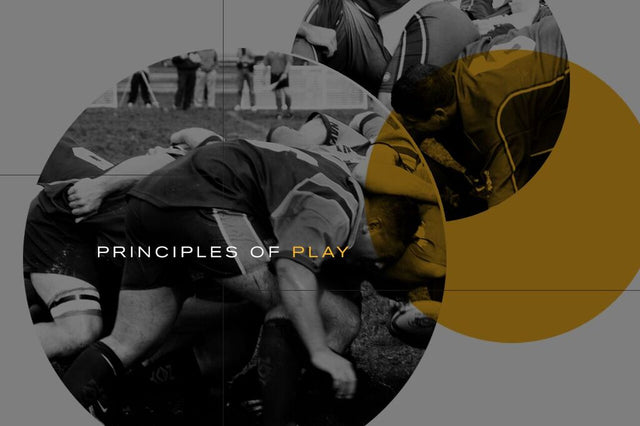The Complexities of Rugby
Written By: Andrea Burk
Photos by: Ron LeBlanc
Have we been coaching rugby all wrong?
I remember the day we had a sharp practice as we ran through all of our plays; every lineout and backs’ play was flawless and went to hand. The six opposition players in our barely opposed run could hardly stop us. Everything was lined up for a ‘smashing’ come Saturday. Only on Saturday, everything fell horribly to pieces.
How many times do you run a drill where the team is flawless in practice and it all goes awry come Saturday's game?
Too often we coach people on how to play rugby in a simple environment, and don't teach how they can transfer those skills to the complex environment of an open and live game. Applying the Cynefin Framework (pronounced Kin-Evan) to your practice plan will alleviate this. Cynefin, meaning ‘place,’ has me wondering about how we coach based on the ‘place’ the players are positioned on the field.
I’m not talking about goal line, 40m, or attacking 22m; but instead I’m referring to which place (or environment) are they are within the Cynefin framework. Are your athletes in a Simple, Complicated, Complex, or Chaotic place in the game, and are we coaching to thrive as such?
COMPLEXITY & COACHING
SIMPLE = Closed skills, like static catching, passing, or kicking.
In this place, there are really only a few good ways of operating. Closed skills require thousands of repetitions, building muscle memory, so they can be performed unconsciously at speed, and under fatigue in the complexity of the game.
COMPLICATED = The tackle, 2v1, 3v2, scrums, lineouts, kickoff or 22m drop scenarios.
In the complicated environment, there is a range of possible tactics and solutions depending on what is going on around the play at the time. This requires analysis before action to decide on the best approach. This is where the ‘expert’ analysis comes in.
COMPLEX = The live 80 minute game we train live and breathe for.
The complex environment is an open system where possible outcomes are exponential and cannot be predicted with 100% certainty. Just take a freeze-frame of any rugby game and circle the player who is going to score the try.
To train players to thrive in this environment, coaches need to implement more opposed and/or mini-games into their practice plan, allowing for mistakes and the application of principles of play.
CHAOTIC = A loose ball, the ‘wheels falling off’, or a full bench brawl.
Order is lost, the first-person assert order sets the ground rules; like picking up the ball and going forward rather than shoveling another bad pass.
Since the game of rugby sits largely within the Complex environment, coaches need to prepare their players to thrive here. This happens by integrating opposed, or mini-games, into practice plans and establishing principles of play (or heuristics) rather than a confined structure. Some good principles of play I’ve been coached by are simply this: Go forward; Give the ball carrier three support options (left, right, behind); and Get the ball back when on defence.
Setting principles of play that enhance the unique strengths of your athletes will result in extraordinary outcomes. Two Canadian head coaches have done a great job of this in Canadian rugby history: Damian McGrath with the National Men’s 7s team in 2017, resulting in the team’s first ever 1st Place finish on the HSBC World Sevens Series, and Francois Ratier with the 2014 World Cup Silver medal winning National Women’s 15s team.
COMPLEXITY & CULTURE
The complex environment further extends off the field to establishing team and organizational culture. What are the unique strengths of the group (also known as attractors) that enhance the desired culture? What and where are the negative attractors that weaken the desired culture? Enhancing the positive attractors and eliminating the negative attractors is a sure way to creating a winning culture within a team or organization.
Coaches who can teach how to transfer the closed (or Simple & Complicated) skills to the Complexity of a rugby game with more game real scenarios, like tackling people not bags, and establishing more mini-games, will find the most success. In my experience, coaches at the higher levels are doing this implicitly. The Cynefin Framework helps coaches understand the importance of placing complex drills into a practice plan. Think about it: Why are Canadians so good at hockey? We grow up in a complex environment playing hockey on the road or the frozen ponds in our backyards – just like the Kiwis do with the rugby ball in hand, learning how to read & react to the game in front them.
People say rugby is a simple sport, when in fact its actually a Complex sport with simple principles: go forward & score tries. Bottom line:
Let’s play more rugby.

